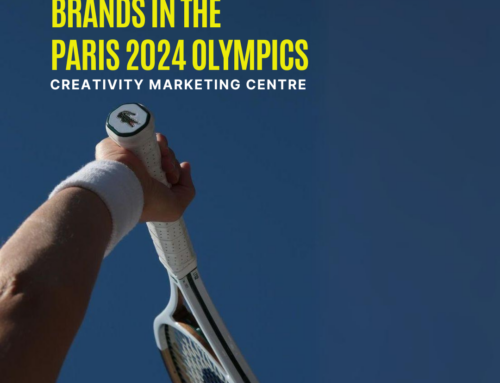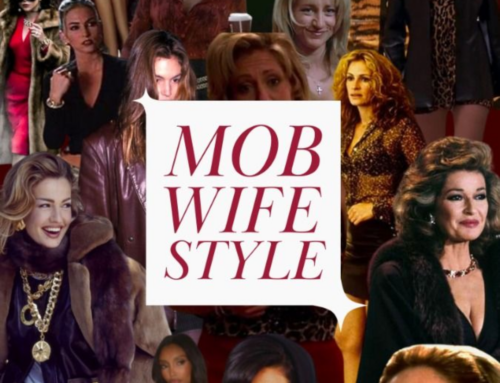GlowLab: A Brand-New Reusable, Personalisable and Eco-Friendly Sheet Mask by Kiehl’s
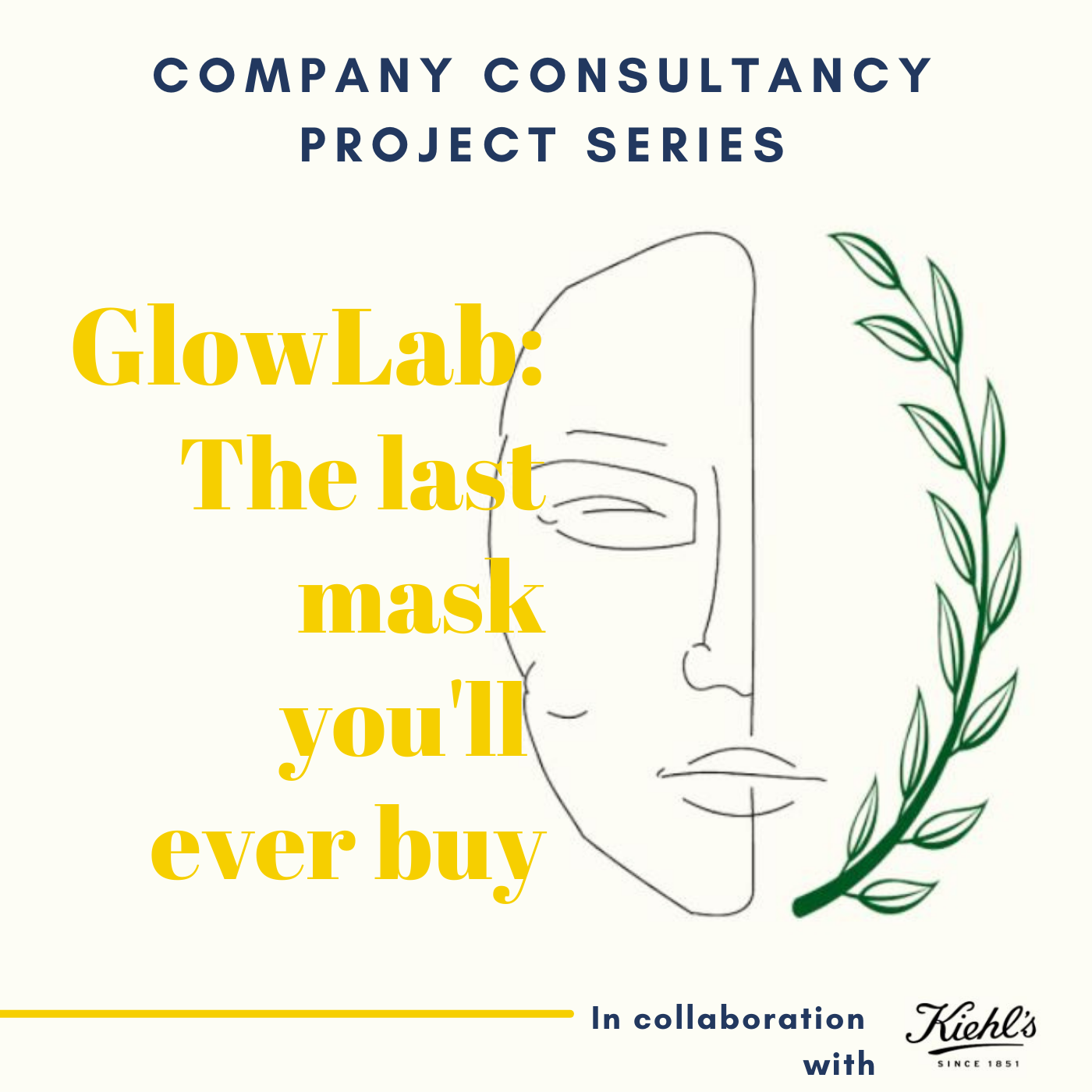
By KARSTENS Anna Maria, KLEPIC Mirjana, MARTINEZ Elena, RAMESH Drishya, SCANNELL Ciara
For our Company Consultancy Project for the ESCP MSc in Marketing & Creativity, our team were assigned global beauty brand L’Oréal as our client.
The context that L’Oréal gave our team was the challenge of reinventing the beauty of tomorrow using technology for sustainability, and included the post-purchase consumer-usage phase of beauty products in general. We conducted deep analysis of several product-usage journeys that a consumer experiences, with focus on both sustainability-related pain points and consumer ones.
After considering recent trends, we decided to focus on cosmetic sheet masks for the following reasons:
- Often made of aluminium and plastic, they can’t be recycled and generate huge CO2 shipping emissions due to their single-use nature
- Many customers avoid them due to their “one-treatment-fits-all” solution, their poor-fit, and their impact on the planet
- Between 2016 and 2024, the compound annual growth rate (CAGR) for global sheet masks was estimated at 8.7%
- In our own primary research survey, we found that 89% would use sheet masks more if they fit properly and were more eco-friendly. The number one sheet-mask deterrent among 68% of respondents was their poor fit. 42.5% consider the poor environmental impact of sheet masks, with 40% of them avoiding sheet masks entirely for this reason
- China has the greatest share of sheet-mask consumption, with a market worth €3.28 billion, expected to grow 27.3% by 2023 to €4.18 billion. With COVID-19, this is set to increase even more as at-home, “self care” salon experiences become even more popular.
We chose to focus on a new, sustainable solution for sheet masks. A product which for some, is used occasionally as a “self-care” treat, but for others, particularly in Southeast Asia, is part of daily skincare routines. Another consumer pain point we identified was the lack of personalisable sheet masks; with their poor fit and one-treatment-fits-all being cause for concern.
Solving two problems at once, we decided to tackle both the environmental issue and lack of personalisation within the industry – the “intention gap”, saying or intending to do one thing, but actually doing another. With regard to sustainability, 65% of consumers affirm that they want to buy from sustainable brands, but just 26% actually do so. With this in mind, we felt it was important to solve consumer pain points as well as environmental ones to better appeal to consumers who value more than just sustainability.
L’Oréal gave us free reign with regard to the chosen brand for our solution. We decided to go with Kiehl’s for several reasons:
- Established player in China with dedicated luxury retail spaces to allow for product demonstrations
- Seen as an innovator in the skincare industry
- Best brand choice with regards to new technology and sustainability
- Science- and medicine-backed brand image, which aligned with our product solution
Introducing GlowLab, the last mask you’ll ever buy. 
GlowLab uses AI technology via an app to scan the consumer’s face, then recommends a perfect-fitting sheet mask based on multiple shapes and sizes. Next, using LiDAR technology, the app analyses the consumer’s skin to suggest particular treatments.
In-store or by delivery, consumers then receive their personalised, reusable, 100% organic cotton sheet mask (1), their treatment serums in dropper-bottles (2), and their “lab” (3), a capsule in which to store the mask and apply their treatments. All production materials are sustainable: the bottles are made of recyclable glass and the lab is made from recycled ocean plastic.
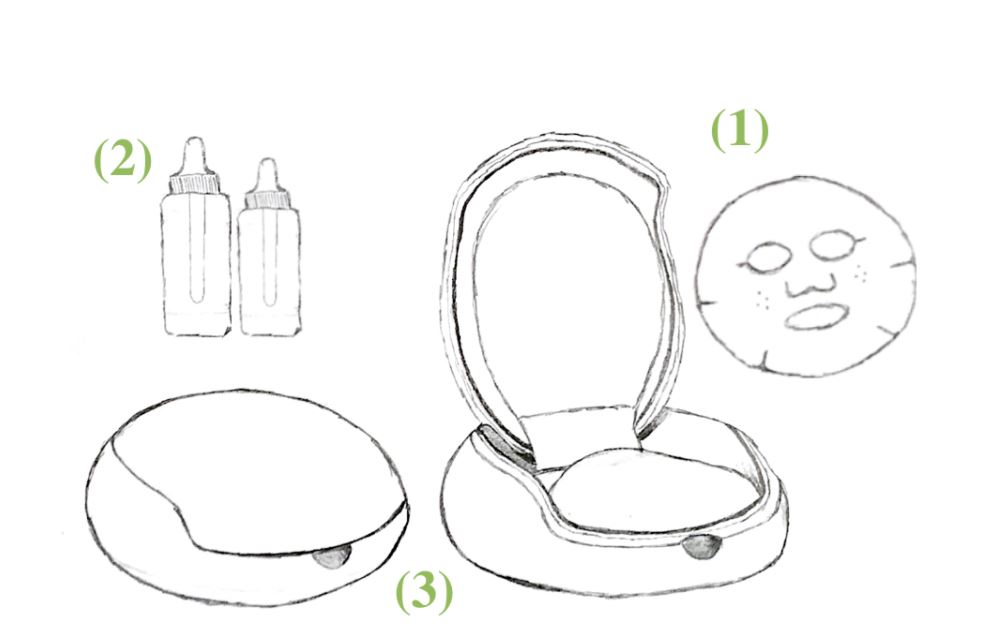
The consumer applies their chosen serums to their sheet mask via the droppers to create a personalised skincare treatment. The cotton mask is reusable, and can be washed by hand or among other laundry in the washing machine.
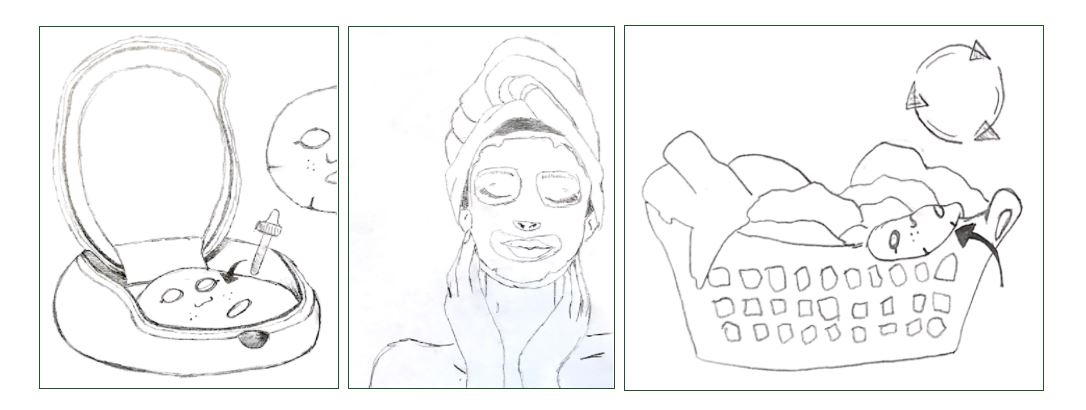
The serums can be refilled in-store at prices 50% cheaper than the original Kiehl’s product, or the consumer can be sent new bottles (without the dropper lid, which must be reused), for 30% cheaper. The intention is to reward more sustainable consumption habits.
Throughout the eight-week project, we learned a lot about the beauty industry and its impact on the environment. Consumers favour convenience, quality and price, and therefore these factors need to be considered when launching a new, sustainable solution. Too often, the sustainable product is more expensive, or not as good quality. We chose to not fall into these traps, rewarding sustainable consumers with cheaper prices, high-quality products, and a new experience. The impact an incremental sustainable change will have on thousands of consumers is greater than a non-consumer-friendly and intimidating solution that only a few extremely environmentally-conscious people use.
Another learning was that of over-engineering. It’s easy to get too carried away and fall in love with your idea. You continuously improve it, and make it so innovative that eventually it passes the threshold of maximising value. We had to stop ourselves from creating an entirely technological innovation which would actually require additional energy. We were reminded that sometimes less is more, especially with regard to sustainability.
GlowLab is an easy to implement solution that would work in numerous markets. Due to its refillable nature, it would also greatly increase Kiehl’s customer loyalty. The benefits are countless for L’Oréal, the consumer and – of course – the environment.

